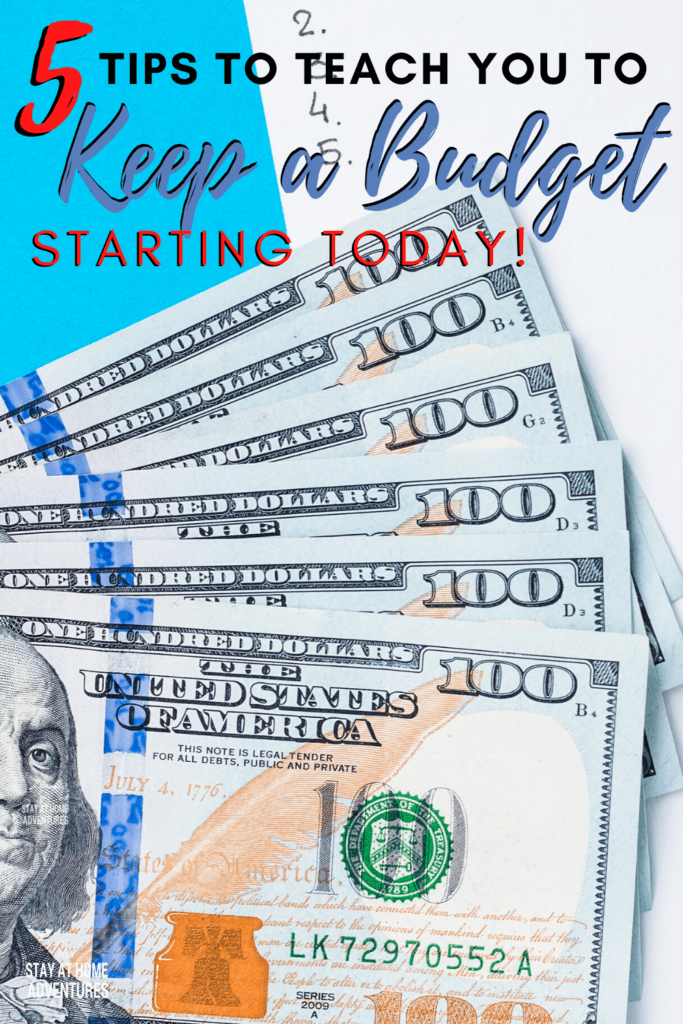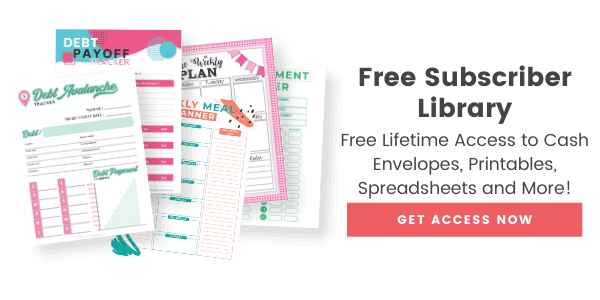How to Keep a Budget
This post may contain affiliate links which might earn us money. Please read my Disclosure and Privacy policies hereYou start a budget and fail. It happens. Believe me, it happens. You will learn how to keep a budget with these five tips.
Let’s begin!

Committing to a budget can be daunting. Budgets are restrictive, and many people fall off the wagon before getting on.
Budgeting generally takes a great deal of self-discipline and motivation, but there are some easy ways to ensure that you stick to your budget.
One important thing you must do is not to give up!
If this is your first time budgeting, I hate to say this, but you will fail a couple of times. It happens.
- Amazon eBook pick: The Budgeting Habit: How to Make a Budget and Stick to It!
Once you find the right budget that works for you and your family, things will work out fine. Believe me, I am sharing this because it has happened to many other people and me.
You are not alone.
5 Tips To Teach You How To Keep A Budget
You have created a budget and are working on your finances, but keeping it's becoming a challenge. Follow these five tips to help you stick with a budget.
Know your why
Why are you doing this? Why are you budgeting? Knowing and understanding why creating and keeping a budget is important will help you stay motivated.
Cash Envelopes
If this is your first-time budgeting and you have difficulty controlling your spending, use the cash envelope system.
The simplest budget is the envelope method and is pretty easy to follow. When shopping, you should only take the envelope that is budgeted for that purpose with you. By doing this, it ensures that you will not overspend.
If your envelope has one month’s worth of grocery money in it and you plan to do one week’s worth of shopping, take only one-fourth of that amount. This is a very simple way to keep within the parameters of your budget.
We go over so about the cash budgeting system on the links below:
Round Up
When figuring expenses in your monthly budget, always round up. This will ensure that enough money can be allocated for each expense and can increase the odds of having a surplus at the end of the month. This surplus can be used in a multitude of ways.
Give and Take
Rewards are the best incentives, especially when it comes to rewarding yourself. After the month is over and you have a surplus in some of the categories, there are various ways of using this money. First, you can roll this money over until the next month.
This is simple, but the rewards aren’t seen immediately. Other options are to save that money, buy a small treat for yourself, or a combination of both, which is the most effective solution. Seeing this money add up in savings and rewarding yourself for your effort will bring the most satisfaction.
Ask for Help
Sticking to a budget is rarely easy, and there is no shame in asking for help if needed. Not everyone possesses effective budgeting skills, so take advantage of those around you who do. Ask them how they make their budget work.
You could also ask a trusted family member or friend to hold on to your cash after you have paid your bills and give you a specific allotment to live off of each week. It can be harder to budget a monthly sum of money rather than a weekly sum.
Budgets are harder to follow than creating. A successful budget takes self-discipline to stick to. It is not easy, but developing positive spending habits and saving techniques will increase the chances of success.






